How Long Does It Take to Tan in UV 7? Risks, Timing, and Protection
How long does it take to tan in UV 7? At this high UV index, unprotected skin can begin to burn within 20–30 minutes, and some may notice tanning before damage occurs. Understanding UV exposure is essential, as UV-7 carries significant risks for all skin types. Keep reading this post to understand more about this issue.
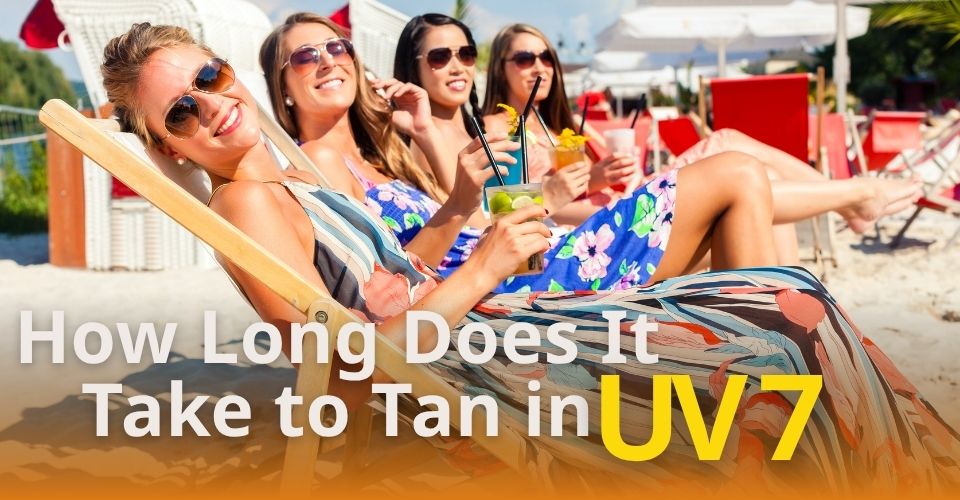
How long does it take to tan in 7 UV?
- Understand UV Index
- UV Index and Tanning
- How Long Does It Take to Tan in UV 7?
- Other Factors That Affect Tanning Time
- Skin type
- Climate and weather
- Amount of direct sunlight
- SPF
- Possible risks of tanning
- Precautions to reduce harm from UV 7 exposure
- Stay hydrated
- Put on sunscreen
- Wear protective clothing
- Take breaks in the shade
- Change positions frequently
Understand UV Index
UV index is a measure of the level of UV radiation. The higher the UV index is, the greater the risk of damage to health, especially skin and eyes.
Look at UV index scale below:
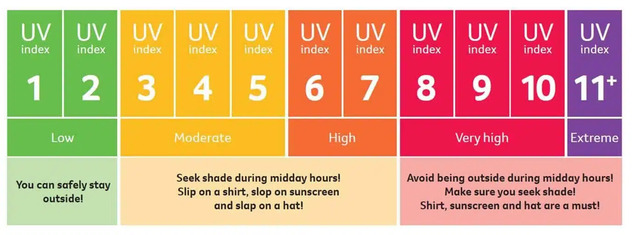
The UV scale
Understanding the UV index clearly will help you make a decision on the best time to tan without sunburn or any health problems.
UV Index and Tanning
It is said that in practice, no UV index is optimal for tanning.
The NHS warns that a "perfect tan" does not exist.
Regardless of the UV index number, spending long periods in the sunshine is not recommended because any tan increases the chance of developing skin cancer.
Here is a brief guide describing what precautions you should take to keep healthy depending on the UV index.
|
UV index |
Average time it takes to burn |
Protection Action |
|
UV index 0 - 2 |
60 minutes |
Sunscreen SPF 30+, sunglasses. |
|
UV index 3 - 5 |
45 minutes |
Apply sunscreen SPF 30+ every 2 hours. Wear a hat, sunglasses. Seek shade. |
|
UV index 6 - 7 |
30 minutes |
Apply sunscreen SPF 30+ every 2 hours. Wear a wide-brimmed hat, sunglasses. Wear long clothes if comfortable. Seek shade. |
|
UV index 8 - 10 |
15 - 25 minutes |
Apply sunscreen SPF 30+ every 2 hours. Wear a wide-brimmed hat, sunglasses. Wear long clothes if comfortable. Seek shade. Limit the outdoor time to a minimum |
|
UV index 11+ |
10 minutes |
Apply sunscreen SPF 30+ every 2 hours. Wear a wide-brimmed hat, sunglasses. Wear long clothes if comfortable. Seek shade. Limit the outdoor time to a minimum |
How Long Does It Take to Tan in UV 7?
From the table of the best UV index for tanning above, you can tan in the UV 7 for up to 30 minutes.
Longer exposure to UV 7 greatly increases the risk of painful sunburn, premature aging, and long-term skin damage.
However, in fact, some people may notice tanning or darkening before skin damage occurs after getting a tan for several minutes.

Tanning under the UV 7
The exact tanning time depends on many factors, such as your skin type, climate, and weather, or even the amount of sunscreen.
Keep reading this post to find out which factors affect the time for sunbathing.
Other Factors That Affect Tanning Time
Skin type
The key factors influencing how rapidly you can tan are your skin type and susceptibility to sun exposure.
The Fitzpatrick scale divides skin into six phototypes according to melanin levels.
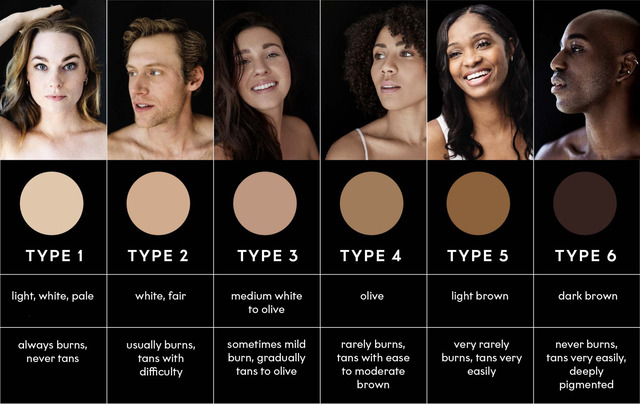
What is your skin type
Fairer skin may burn in less than 20 minutes, while darker skin may take longer to show visible changes. However, all skin types are vulnerable to long-term UV damage.
Here is a quick list of tanning times.
Keep in mind that all skin types do not have the same tanning schedule.
|
Skin class |
Exposure time |
|
1 |
• Burn: 10 minutes • Tan: No tan |
|
2 |
• Burn: 20 minutes • Tan: Moderate tan |
|
3 |
• Burn: 30 minutes • Tan: Easy to tan |
|
4 |
• Burn: 50 minutes • Tan: Likely to have a “dark” tan |
|
5 + 6 |
• Burn: Longer than 60 minutes • Tan: Skin won’t tan, or become “darker,” than it is |
These are just suggestions. Each skin is unique; therefore, always pay attention to skin reaction and adjust proper tanning times.
Climate and weather
UV exposure also changes due to geographical location, latitude, and the weather.
UV rays’ intensity increases in locations near the equator or at higher altitudes.
Cloud cover also influences UV exposure since clouds can scatter UV radiation, resulting in milder tanning potential.
Reflections from water and snow, on the other hand, amplify UV impacts.
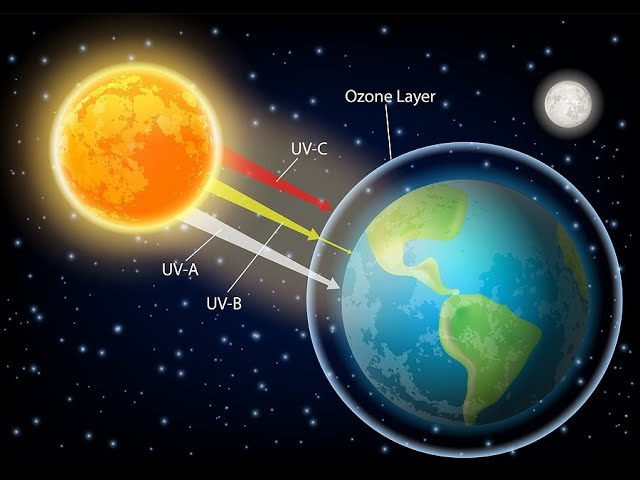
The UV rays are stronger when near to the Equator
Amount of direct sunlight
The angle of the sun affects how quickly your skin tans.
When you're exposed to direct sunlight without taking breaks in the shade, the chances of tanning or burning increase.
However, it’s still possible to tan in shaded areas because UV rays can reflect off surfaces like the ground and reach your skin.
Tanning in the shade may just take a bit more time compared to full sun exposure.

Tan under an umbrella
-
See more: Why is the UV index so high?
SPF
You should always apply sunscreen to protect your skin and health from the UV damage.
Thus, it’s essential to select the proper SPF in sunscreens. Keep in mind that the higher the SPF, the longer you can tan until you start to burn.
Reapply at least every 2 hours or as directed on package to help ensure adequate protection.
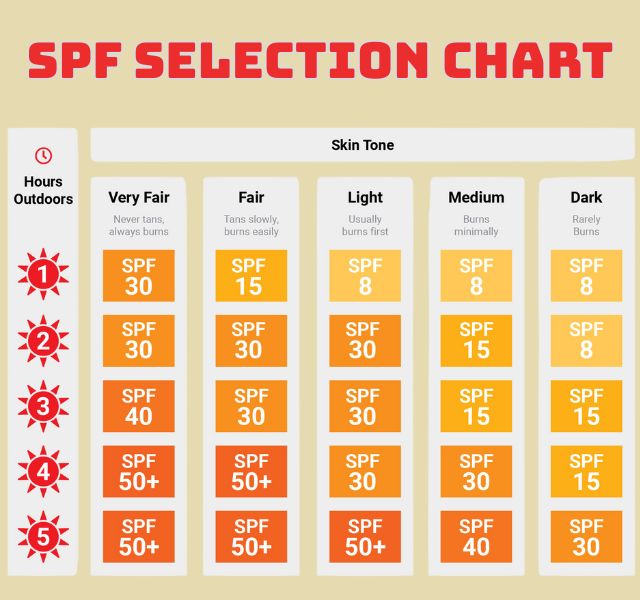
The SPF selection guide
Possible risks of tanning
Getting a tan has risks, especially for your unprotected skin.
Even when you wear SPF, UV exposure can still be damaging.
Exposure to high UV radiation comes with several health risks:
-
Skin Damage: UV rays break down collagen and elastin, leading to premature wrinkles, fine lines, and loss of skin elasticity.
-
Sunburn: At UV 7, unprotected skin can burn quickly, sometimes within 20–30 minutes, depending on skin type.
-
DNA Damage: UV radiation can damage skin cells at the genetic level, increasing the chance of long-term health problems.
-
Skin Cancer Risk: Repeated tanning and burning are linked to higher risks of melanoma, basal cell carcinoma, and squamous cell carcinoma.
-
Eye Damage: Without UV protection, extended exposure can contribute to cataracts and other eye conditions.
-
Immune System Suppression: Too much UV exposure can weaken the skin’s natural defense mechanisms.

Risks of tanning
Precautions to reduce harm from UV 7 exposure
Exposure to UV 7 for too long can cause sunburn, sun poisoning, and increase the chance of skin cancer.
Thus, keep in mind the simple tips below to enjoy the sun.
Stay hydrated
When getting a tan, it’s essential to stay hydrated.
If your body is well-hydrated, your skin remains supple and resilient, which helps it tan more evenly and reduces the risk of dryness or peeling.
Dehydrated skin is more prone to damage from UV rays and may lead to patchy or uneven tanning.
Drinking plenty of water before, during, and after sun exposure supports overall skin health and can help maintain your tan longer.
Hydration also helps your body regulate temperature, making your tanning session safer and more comfortable.

Drink plenty of water when tanning
Put on sunscreen
Broad-spectrum sunscreen protects against both UVA and UVB rays.
It's generally recommended to use at least SPF 30 and apply it 15–30 minutes before sun exposure.
Reapply every two hours—or sooner if you've been sweating or swimming.
For effective protection, apply a visible, generous layer to the skin, similar to how you would use a moisturizer.
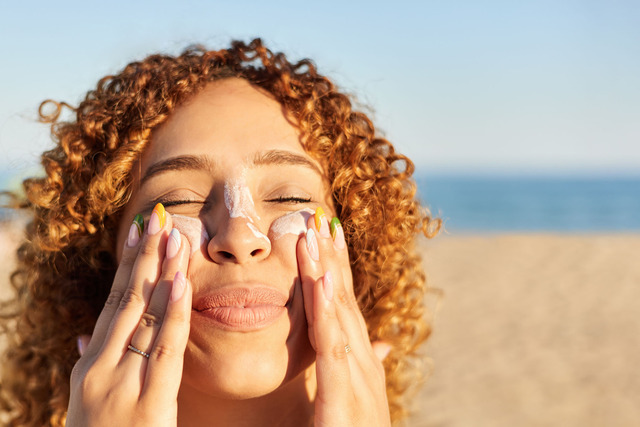
Wear sunscreen
Wear protective clothing
When you're not tanning, keep your skin covered to shield it from damaging UV radiation. Wear a wide-brimmed hat and sunglasses to protect your head, face, and eyes.
Besides, you can consider wearing UV-protective swimwear when you're at the beach or pool.
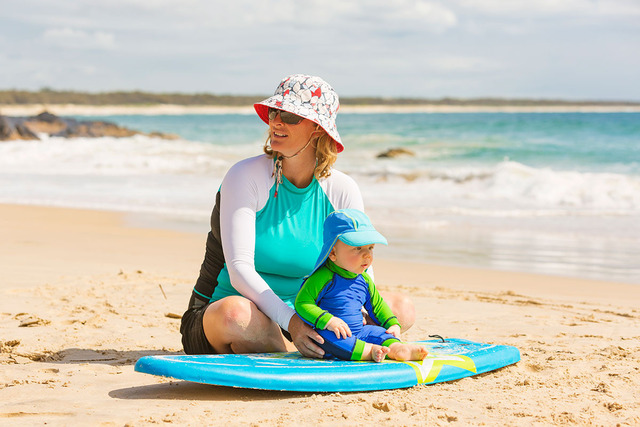
You should wear protective clothing
Take breaks in the shade
The maximum amount of time you should spend in the sun depends on your skin tone and how readily you tan, so keep an eye out for indicators that it's time to seek shade.
If you're suffering redness, heat, or skin tenderness, it's essential to seek shade, calm down, and rehydrate.
If you suffer a sunburn, apply aloe vera to help it heal, and avoid tanning until your skin has completely recovered to prevent further damage.
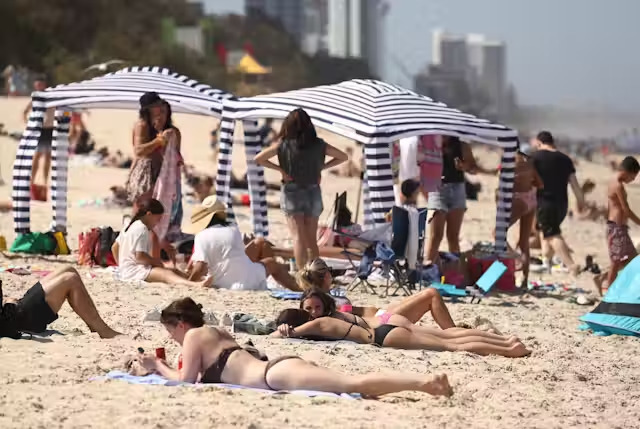
Take breaks in the shade to avoid sunburn
Change positions frequently
If you lie in the same posture for too long, a portion of your body can risk burning.
To avoid this, twist your body frequently. This also helps to achieve an even tan by exposing different portions of your body to the sun for the same length of time.

Change positions frequently to have an even tan
Final Words
How long does it take to tan in UV 7? You can get sun exposure for up to 30 minutes. However, this level of UV exposure also increases the risk of sunburn and skin damage. Always pay attention to the skin reactions to have proper tanning time.

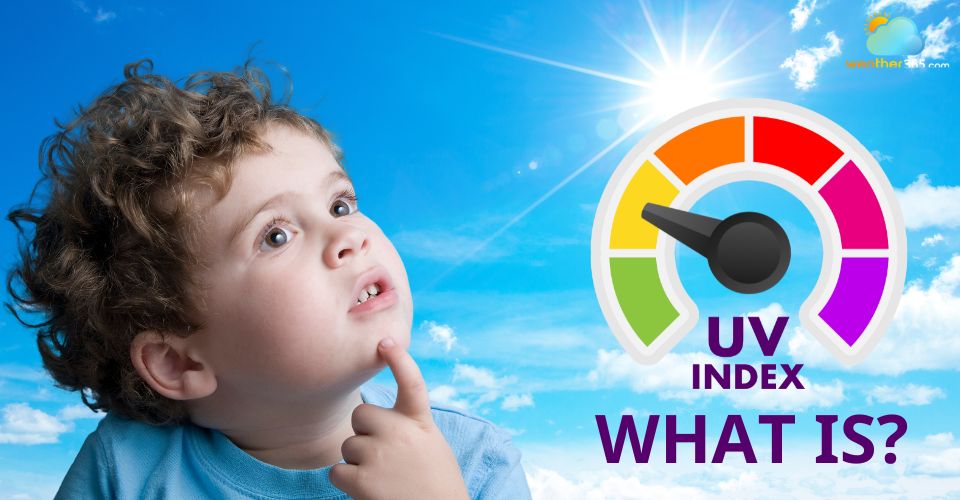
![10+ Hottest Cities in the US Ranked, Based on Temperature [UPDATED] 10+ Hottest Cities in the US Ranked, Based on Temperature [UPDATED]](https://assets.weather365.com/images/1751539318_hottest-cities-in-the-us-1.jpg)
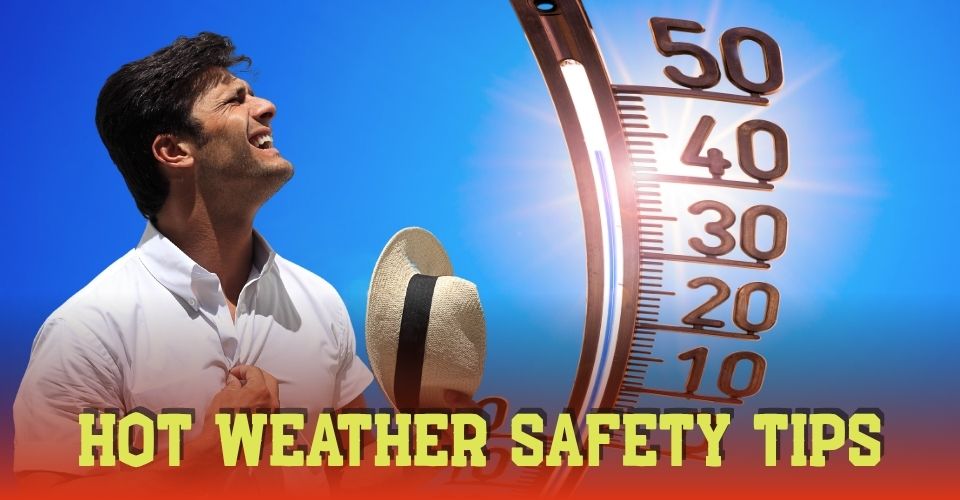
0 Comment
Leave a comment
Your email address will not be published. Required fields are marked *